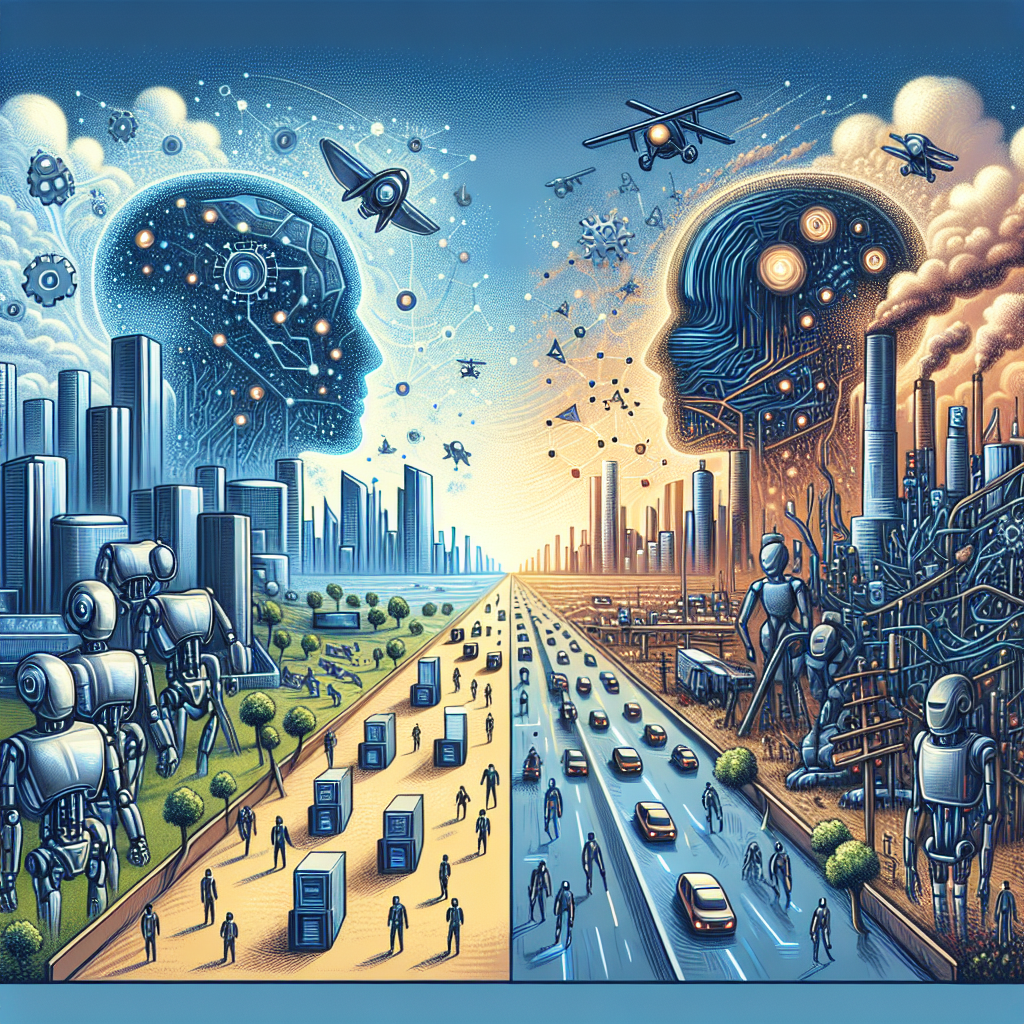Exploring the Potential and Perils of AGI: What the Future Holds
Artificial General Intelligence (AGI) is a concept that has long captured the imagination of scientists, technologists, and futurists alike. AGI refers to a form of artificial intelligence that possesses general cognitive abilities similar to those of humans, allowing it to perform a wide range of intellectual tasks with ease. While current AI systems are limited to specific tasks and domains, AGI has the potential to revolutionize virtually every aspect of human society, from healthcare and education to transportation and entertainment.
However, the development of AGI also raises a host of ethical, societal, and existential concerns. As we move closer to the realization of AGI, it is crucial that we carefully consider the potential benefits and risks associated with this technology. In this article, we will explore the potential and perils of AGI, and speculate on what the future may hold as we continue to push the boundaries of artificial intelligence.
The Potential of AGI
The potential of AGI is vast and far-reaching. With its ability to think, reason, learn, and adapt like a human, AGI has the potential to transform virtually every industry and sector of society. Some of the key potential benefits of AGI include:
1. Increased efficiency and productivity: AGI has the potential to automate a wide range of tasks, freeing up human workers to focus on more creative and strategic endeavors. This could lead to significant increases in productivity and economic growth.
2. Improved healthcare: AGI could revolutionize the field of healthcare by helping doctors diagnose diseases more accurately and quickly, analyzing medical data to identify trends and patterns, and even developing new treatments and therapies.
3. Enhanced education: AGI could personalize the learning experience for students, providing tailored instruction and feedback to help them reach their full potential. This could lead to improved educational outcomes and increased student engagement.
4. Safer transportation: AGI could improve the safety and efficiency of transportation systems by optimizing traffic flow, predicting and preventing accidents, and even piloting vehicles autonomously. This could help reduce traffic congestion and save lives on the road.
5. Enhanced entertainment: AGI could create immersive and interactive experiences in entertainment, such as personalized recommendations for movies and music, lifelike virtual reality simulations, and even AI-generated content like books and movies.
The Perils of AGI
While the potential benefits of AGI are vast, so too are the perils. As AGI becomes more advanced and autonomous, it raises a host of ethical, societal, and existential concerns. Some of the key perils of AGI include:
1. Unemployment: As AGI automates more tasks and jobs, it could lead to widespread unemployment and economic disruption. This could exacerbate income inequality and social unrest, particularly for workers in industries that are highly susceptible to automation.
2. Bias and discrimination: AGI systems are only as good as the data they are trained on, and if that data is biased or incomplete, it can lead to discriminatory outcomes. This could perpetuate existing inequalities and injustices in society.
3. Loss of control: AGI systems are designed to learn and adapt on their own, which raises concerns about their ability to act independently of human oversight. If AGI systems are not properly aligned with human values and goals, they could pose a significant risk to society.
4. Security and privacy: AGI systems could be vulnerable to hacking, manipulation, and misuse, leading to breaches of security and privacy. This could have serious consequences for individuals, organizations, and even entire nations.
5. Existential risk: Some experts warn that the development of AGI could pose an existential risk to humanity if it is not carefully managed. AGI systems with superhuman intelligence could potentially outsmart and outmaneuver humans, leading to unintended and catastrophic consequences.
FAQs
Q: How close are we to achieving AGI?
A: While significant progress has been made in the field of artificial intelligence, true AGI remains a distant goal. Most AI systems today are limited to specific tasks and domains, and are far from possessing the general cognitive abilities of humans. It is difficult to predict when AGI will be achieved, but many experts believe it could happen within the next few decades.
Q: What are some of the key challenges in achieving AGI?
A: Some of the key challenges in achieving AGI include developing algorithms that can learn and adapt like humans, understanding and replicating human cognition, and ensuring that AGI systems are aligned with human values and goals. There are also technical challenges related to scalability, robustness, and efficiency that must be overcome.
Q: How can we ensure that AGI is developed responsibly?
A: Ensuring that AGI is developed responsibly requires a multi-faceted approach. This includes establishing ethical guidelines and standards for the development and deployment of AGI, conducting research on the societal impacts of AGI, and engaging with stakeholders from diverse backgrounds to ensure that AGI benefits all of society.
Q: What are some potential uses of AGI in the future?
A: Some potential uses of AGI in the future include personalized healthcare and medicine, autonomous transportation systems, intelligent virtual assistants, and AI-powered creative tools. AGI could also be used to tackle complex societal challenges such as climate change, poverty, and inequality.
In conclusion, the potential and perils of AGI are vast and complex. While AGI has the potential to revolutionize virtually every aspect of human society, it also raises a host of ethical, societal, and existential concerns. As we continue to push the boundaries of artificial intelligence, it is crucial that we carefully consider the implications of AGI and work together to ensure that it is developed and deployed responsibly. Only by doing so can we harness the full potential of AGI while mitigating its perils for the benefit of all of humanity.

